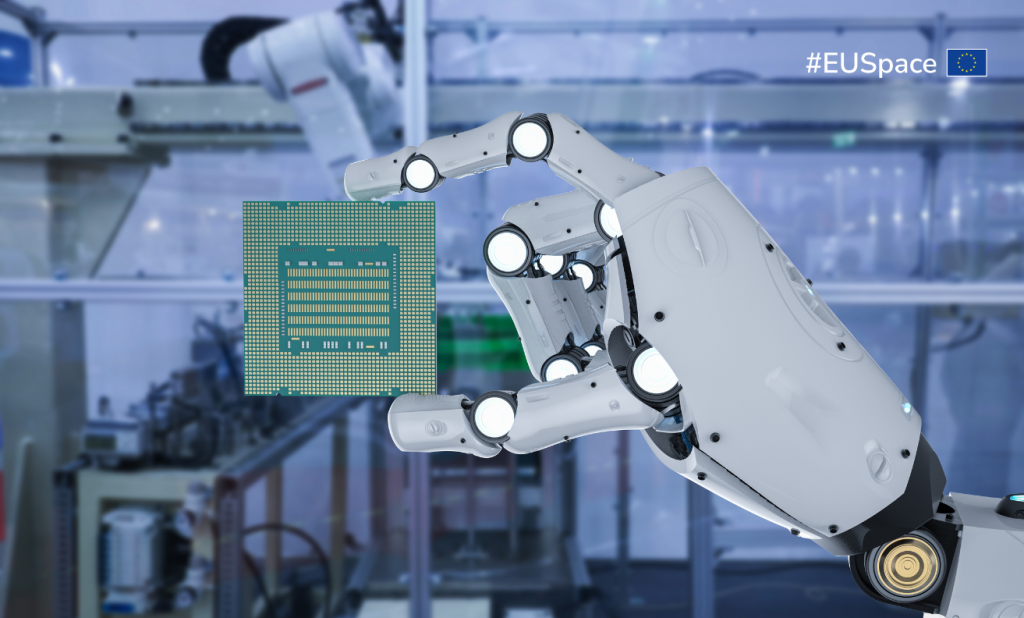Final workshop for OSNMA Public Observation Test Phase

The OSNMA is a new, breakthrough feature of Europe’s positioning system that meets a clear user need: improve the trustworthiness of GNSS signals. This service provides an authentication mechanism to allow Open Service users to verify that the navigation data received come from Galileo and have not been modified in any way.
To acquaint interested receiver manufacturers and application developers with the Galileo OSNMA functionalities, EUSPA and the European Commission have been engaging with users through a Public Observation Test Phase. Over the past two years, manufacturers and integrators in the GNSS industry have had the opportunity to thoroughly test Galileo's OSNMA service through the use of Signal in Space (SiS) in various scenarios tailored to their target use cases. This testing phase has also provided valuable insights and allowed for a productive exchange of views with industry experts, all while assessing the performance of the OSNMA service. The Public Observation Test Phase will continue to be active till the Service Declaration.
Check this out: Tests of Galileo OSNMA underway
Industry embraces Galileo OSNMA
The Public Observation Final Workshop was welcomed with a great enthusiasm with participants praising the significant value that the service has added and the vast possibilities it is opening up.
During the test phase, the Galileo constellation performed excellently, with signal availability exceeding 90% in urban and 80% in deep urban environments, respectively.
"Through the various consultations we had with the industry, it became evident that robustness and innovation are the main competitive advantages of the service. To date, Galileo is the only GNSS to offer such a feature’’ says Flavio Sbardellati, EUSPA Market Development Technology Officer. "A very important outcome of our interactions was that OSNMA is an ‘’easy to sell’’ service with numerous benefits across various industries.
Several leading receiver manufacturers across the EU now confirm the readiness of the OSNMA with Ublox, TeleOrbit and Fraunhofer IIS preparing to include this new Galileo feature in their platforms. System integrators such as Safran Electronics & Defence (formally Orolia) view the OSNMA as a means to reinforce their unique selling proposition while the Norwegian Metrology Service is considering it for timing and synchronisation purposes.
One of the most promising sectors is undeniably mobility with international mobility service provider Sixt highlighting the importance of OSNMA in ride-hailing and car-sharing applications.
OSNMA can provide added value to smartphone users too. Airbus Defence and Space confirms that mass market chipsets are making steady progress towards enabling the processing of OSNMA data via Android API, presenting a promising opportunity for wider adoption.
A possible solution to bring OSNMA into smartphones has been presented by Qascom, a leading company in GNSS authentication. Through assistance data, it is possible to provide improved performance, simple implementation, and a hot start in any condition.
Read this: One step closer to OSNMA: SIS ICD and Receiver Guidelines just released
OSNMA contributes to European security and resilience
In the last year and in the current geopolitical context, an increasing number of jamming and spoofing incidents have been recorded by the GNSS community. For instance, the European Aviation Safety Agency has reported numerous events of signal outages or distortions in geographical areas surrounding the conflict zone areas.
GNSS signal falsification or denial can have disastrous impacts on applications and market sectors that rely on precise and reliable position, navigation, and timing information. The global economy could suffer tremendous losses in case of GNSS outages caused by various attacks such as spoofing.
"Galileo is an instrumental component of the EU Space Programme and a crucial asset contributing to the autonomy and resilience of the Union as well as the safety of its citizens. Its authentication service, OSNMA, is a real differentiator to position a stronger system worldwide that we, Europeans, achieved together'', says EUSPA Chief Operating Officer, Pascal Claudel.
OSNMA provides a first layer of authentication to GNSS with minimal impact on the receiver side and is completely free for the final users. The Galileo Open Service Navigation Message Authentication is expected to become operational within 2023.
Media note: This feature can be republished without charge provided the European Union Agency for the Space Programme (EUSPA) is acknowledged as the source at the top or the bottom of the story. You must request permission before you use any of the photographs on the site. If you republish, we would be grateful if you could link back to the EUSPA website (http://www.euspa.europa.eu).